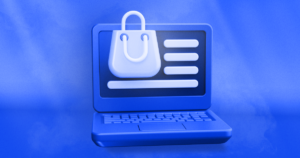The market for large digital goods has seen massive growth recently. If you decide to start a business in this realm, you will need to open a special merchant account to deal with payments coming from different channels. In this context, make sure to find a licensed merchant account provider. Reliable banks and other financial organizations can help you manage your funds and even protect your business from financial crises. We’re here to tell you things you should know about digital goods merchant accounts, including who you might partner with. Keep reading our blog post for more details.

Music, e-books, stock photos, streaming media, web extensions, blog posts, graphic design elements, and online courses belong to the broad category of digital goods. As a merchant selling digital goods, you need to think about how you can accept payments. Setting up a merchant account with a licensed provider will help you manage regular transactions. It will also help you enhance customer service, which is extremely important for business. Funds will appear on your bank balance within minutes after the verified purchase. Here is why you should set up a merchant account:
As a digital merchant with large revenues, you should be ready to accept payments and process refunds. A merchant account allows your business to manage funds independently. Thus, you won’t get the funds held back by third parties. You will get and store money coming with a sale. All the fees are removed, so the money lands in your business account directly.
Digital products like video games, software, and other versions of digital content are delivered to customers virtually. The whole process can’t be fully controlled. Something may go wrong when using an activation key or waiting for a confirmation email. Large digital goods merchants are often considered high risk by payment processors and banks. Here are the key risk factors:
Considering these risk factors, payment processors may impose higher fees, rolling reserves, or strict compliance policies on large digital merchants. Choosing a large digital goods merchant account with a fraud prevention mechanism can help mitigate possible challenges.

As a business owner selling digital goods, you require a secure payment processing mechanism that monitors transactions. Keep your expectations from digital goods merchant services clear. You should have a good understanding of how to organize seamless management of financial resources. Let’s take a close look at the key features.
Digital goods are often prone to fraud and chargebacks, making it significant to have a secure payment processing system. Your business should establish strong security standards to protect sensitive data, including personal and financial details. Tokenization and 3D Secure authentication can enhance security by preventing unauthorized transactions. Fraud detection tools such as AI-based risk analysis help detect suspicious activity and reduce chargebacks. You can focus on your business expansion.
Using trusted payment gateways like Stripe or PayPal ensures efficient transactions with high security. Your business should also offer multiple payment options to enhance user experience. Regular security audits and two-factor authentication (2FA) can further safeguard transactions, minimizing fraud risks on your digital goods applications account.
The merchant should be able to accept fast transactions, implement fraud prevention tactics, and raise customer satisfaction. Offering convenient payment methods can boost the user experience. Implementing chargeback protection tools and real-time transaction monitoring reduces the risks of financial losses. A legitimate merchant account with low processing fees and high approval rates ensures steady cash flow.
In addition, the merchant can get valuable insights to track customer demands and optimize pricing and promotions accordingly. Providing responsive customer support and clear refund policies builds trust and reduces disputes. A strategic approach to selling digital goods ensures commercial profits.
Scaling a digital goods business requires quick payment processing, global reach, and automation. Expanding to international markets requires locally accessible payment methods. Implementing fraud prevention mechanisms helps secure transactions as sales volume grows. Automated invoicing and subscription management improve efficiency, reducing manual workload specifically.
Partnering with high-risk payment processors ensures smooth financial operations despite higher chargeback risks. Scalable merchant services allow businesses to handle rising demand without compromising performance or security.

If you are selling digital goods or planning to enter this market segment, make sure to know how to open a digital goods large merchant account with the right payment provider. In this realm, PayAdmit can be the right choice. This cutting-edge payment software provider offers real benefits, such as:
Digital goods merchants operate in a challenging environment where security plays a fundamental role. Their prosperity depends on solid payment processing solutions. PayAdmit can help your business create a secure digital goods merchant account. Invest in the right payment gateway to empower growth and ensure longevity in the high-risk market.